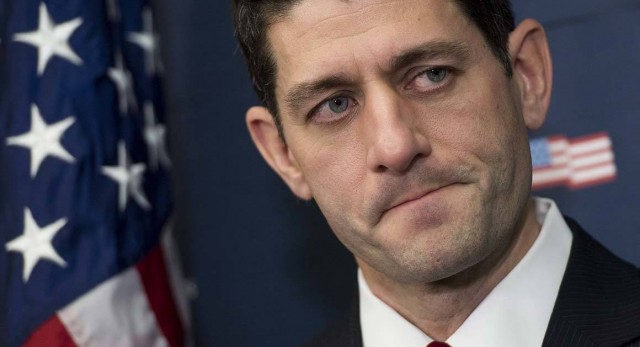
Advertisement
(BigGovernment.news) Republican House Speaker Paul Ryan has a message for the Welfare State: We’re coming to take you down. Following the largest enrollment growth in many welfare benefits programs under the Obama administration, this is the right message at the right time.
As reported by AMI Newswire, a traveling crew of House Republican foot soldiers is continuing to use congressional recess time this summer on a topic for which they rarely are given public credit: Fighting poverty.
It’s all part of what Speaker Ryan calls his “A Better Way” agenda, one of the core principles of which is to disconnect the federal government from its generations-old control over anti-poverty programs.
Ryan this week highlighted the efforts of sophomore Rep. Bradley Byrne, who earlier this month toured multiple locations in his southwest Alabama district to promote an agenda that first began gathering publicity in Washington in May. On Aug. 2, Byrne toured multiple locations in Mobile and Washington counties, including an addiction recovery center and a thrift store, and held subsequent town hall talks on the topic.
“This is what we should be all about: giving people the tools they need to live instead of just giving them another government program,” Byrne said at one of his stops. “We get people a better life by moving them out of poverty.”
Byrne isn’t alone. During the Democratic National Convention In late July, Ryan sent GOP Rep. Tom Reed to upstate New York, to walk through streets and schools in poverty-stricken parts of Rochester.

Rochester isn’t even part of Reed’s New York district. But he carried the same message as Byrne, describing the Better Way agenda as, “Looking at the front line, what’s working, what doesn’t work, and how can we change our policies going forward, because the status quo is not addressing this issue.”
The House Republican plan includes five basic elements, stressing efforts to reward work, better coordinate aid programs so they are easier to navigate, and reforms to child-welfare programs, among others.
Sending House GOP colleagues out into the country is part of a grass-roots, bottom-up strategy that Ryan has been employing since he formally unveiled the poverty plank of the platform on June 7 at a nonprofit social-services and housing provider in the low-income Washington neighborhood of Anacostia.
Critics have said the Better Way agenda lacks specifics – such as legislation to address many of the ills – and are nothing more than age-old, warmed-over Republican ideas on combatting the welfare state. For example, at the heart of many of the initiatives is a loosening of federal control over anti-poverty programs, increased work requirements for Americans receiving government benefits, better tracking of programs’ results, and more attention paid to waste and fraud.
Democrats have mocked the GOP agenda as “a new spin on a bad deal,” “nothing new but the packaging,” and “a better way to fall into poverty.”
But they would, because Democrats are experts at creating dependency on government and poverty – not providing opportunities for Americans to be all they can be. It’s the Democrat game plan that has been in place for 50 years, ever since Lyndon B. Johnson’s “Great Society” war on poverty, which has been an abject failure.
Ryan previewed the agenda – formalized into a 35-page document – to reporters at the Capitol in late May, as part of a six-part effort by House Republicans to seize legislative momentum on such social issues while the nation’s presidency is in flux. At one point, he acknowledged that the topic is not often seen as a traditional one for Republicans, saying at one point, “It used to be.”
At the June 7 rollout event, Ryan stood with the Anacostia agency’s leaders and a clutch of fellow House Republicans to explain his purpose.
“This is how you fight poverty. This is how you create opportunity. This is how you help people move onward and upward,” Ryan said. “We wanted to start with poverty because we think this sums up our case.”
Anything Congress can do to stimulate more Americans to independence from the constraints of the nanny state will be a good thing for generations to come.
More:
- Here Is Proof Positive That Obama Is America’s Most Prolific Big Government Socialist Ever
- Obamacare Continues To Destroy The Health Insurance Market As Congress And The President Seem Okay With It
- The Hillary Effect: Prospective Diplomatic Security Agents Can’t Tell If Its Safe To Work For The State Dept.
BigGovernment.news is part of USA Features Media.
Submit a correction >>
This article may contain statements that reflect the opinion of the author
Advertisement
Advertisements
















